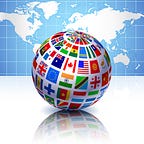“As you move through this life and this world you change things slightly, you leave marks behind, however, small. And in return, life — and travel — leaves marks on you. Most of the time, those marks — on your body and on your heart — are beautiful. Often, though, they hurt.”
The Late Anthony Bourdain
The news on Friday, 8 June 2018 of the sudden death of Anthony Bourdain, celebrity chef, best-selling author, journalist, and host of the Emmy award-winning show, “Parts Unknown” which aired on CNN (www.cnn.com), left everyone — his family, his colleagues at CNN, his friends, the souls whose lives he touched who were featured on his show, and the millions of souls who viewed his show on Sunday evenings — in a complete state of shock. It was the way he died that was so earth shattering. Suicide. If you are hearing about Anthony Bourdain for the first time, you may wonder why his death is an unfathomable loss to humanity. Anthony Bourdain was a soul who transcended the imaginary boundaries that make it difficult for many of the 7.6 billion souls on Planet Earth to embrace their “connectedness”. And Bourdain’s “Parts Unknown” became a platform for teaching us to “step outside of ourselves” and “embrace the souls of others.”
Hopscotching from one end of the earth to the other, Bourdain took viewers of his award-winning show “Parts Unknown” into the kitchens of the world. Sometimes the kitchens were in restaurants. In other instances, the kitchens were in someone’s home in a village in South America, Africa, South Asia or in a working-class community in an American city. You would find Bourdain breaking bread with Congolese chieftains in an African village in a forgotten rural district in the Democratic Republic of the Congo. Or in a restaurant tucked away on a small street in Hanoi, Vietnam where — in 2016 — he chatted and dined with the 44th President of the United States, The Honorable Barack H. Obama. Or in the South Asian Kingdom of Bhutan where he shared a meal with yak herders in the Himalayas. Bourdain held a mirror in front of the world’s 7.6 billion souls — a mirror which reflected their “connectedness”– a “connectedness” that transcended their ethnicity, religion, politics, language, class, culture, and economic status. And that mirror was “Parts Unknown”. Bourdain showed us that embracing each other’s soul was the pathway to realignment with our “connectedness” and the joy and magic that life holds for all of us.
So, what does Anthony Bourdain’s death –suicide — have to do with you and me? Suicide is the rising cause of death among Men in the 40–65 age group. Bourdain was 61 years old when he ended his life in a Kayersberg, France hotel room — just 17 days shy of his 62nd birthday which would have been on 25 June 2018. His death has sparked a global dialogue on suicide and mental health — particularly Men and mental health. There are many Anthony Bourdains among us — in our families, in our workplaces, and in our neighborhoods — who, for whatever reason, have reached or been driven to such a level of desperation that they feel they have run out of options. We need to pay attention — really pay attention — to the Men and Boys in our lives. Do not dismiss behavioral changes — changes in eating habits, changes in sleeping patterns, changes in grooming and hygiene. These changes are tell-tale signs of a soul who is in deep distress. The evening before Anthony Bourdain took his life, he did not show up at a restaurant for dinner. This was unusual for him. His “no show” for dinner was a tell-tale sign. A close friend recalled that he thought it was strange because it was not like Bourdain to miss a good meal. It wasn’t until the next morning — when he did not show up for breakfast — that the close friend decided to investigate.
Are we missing the signs that something terribly wrong is going on with the Anthony Bourdains in our own lives? Men and Boys are socialized not to complain . . . not to express the natural and spontaneous reaction to pain — be it physical, spiritual, emotional, or psychological. We cannot expect the Men and Boys in our lives to come running to us and unburden themselves with the spiritual, emotional, or psychological distress that plagues their souls. They will not come to us and say: “I need help. Help me, I’m drowning.” They are socialized to be strong and being strong and being a man means you do not ask for help. They have been socialized to believe that asking for help is a sign of weakness — that it is “unmanly.” But more importantly, if the Men and Boys in our lives do come to us seeking help, will we be able — willing — to help? Will we know what to do . . . what to say? Will we hit the “pause” button, “step out of ourselves,” and embrace their souls?
We should be engaging the Men and Boys in our lives in conversations — real conversations — every day. We should be asking questions. Questions like “What happened today? Did you have a good day? Did you have a bad day? How do you feel? Are you feeling overwhelmed? Are you depressed? What is going on in your life that is making you feel overwhelmed or depressed or misunderstood? What do you need and want me to do to help you get through this difficult time?”
Asking these questions is not about “feminizing” Men and Boys or invading their space. It is about helping to create a psychological, spiritual, and emotional life line for Men and Boys.
